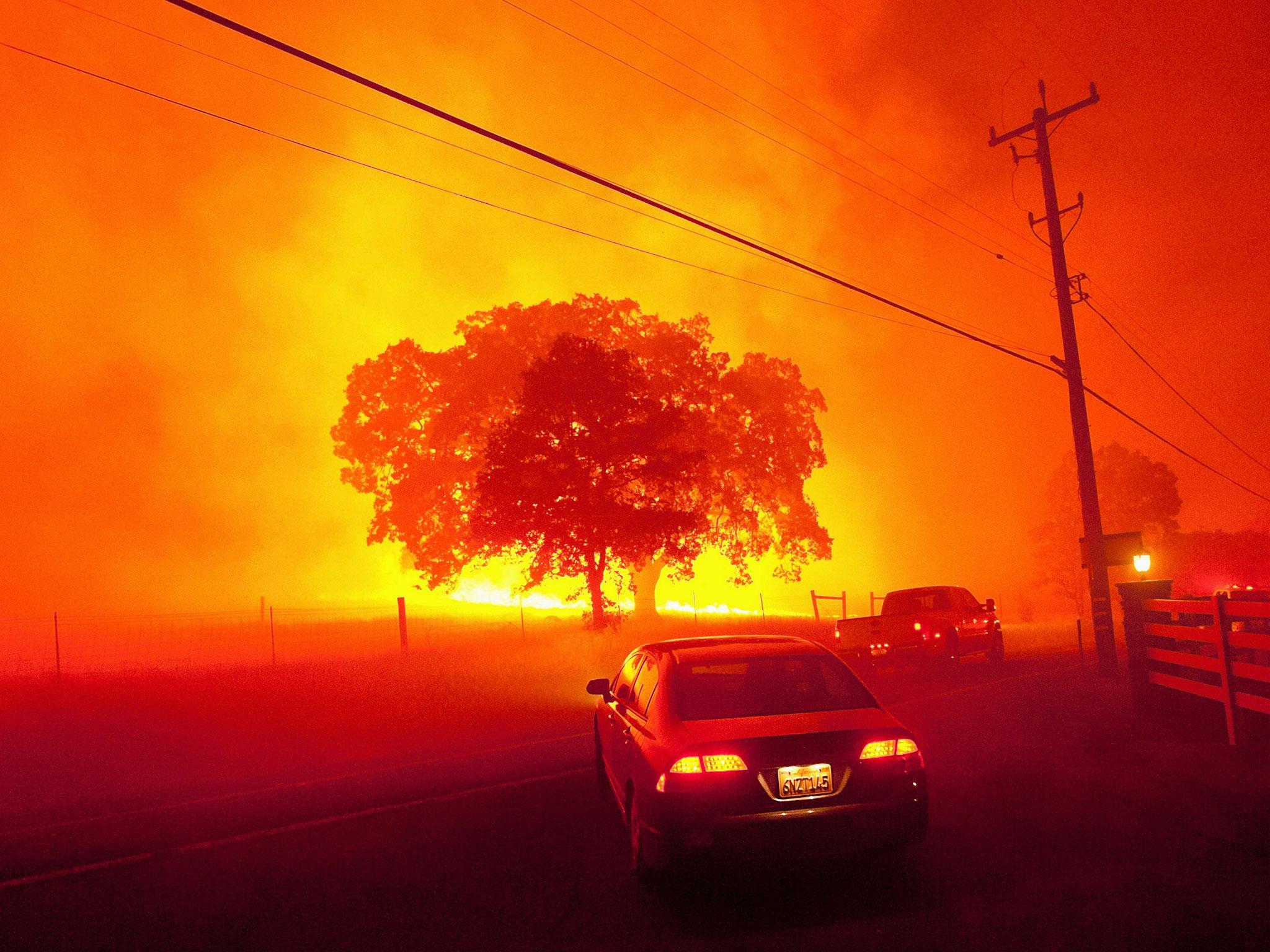US West enters 'new era' of unstoppable wildfires because of climate change, experts warn
'This is bigger than us and we're going to have to adapt to wildfire, rather than the other way around'

Your support helps us to tell the story
From reproductive rights to climate change to Big Tech, The Independent is on the ground when the story is developing. Whether it's investigating the financials of Elon Musk's pro-Trump PAC or producing our latest documentary, 'The A Word', which shines a light on the American women fighting for reproductive rights, we know how important it is to parse out the facts from the messaging.
At such a critical moment in US history, we need reporters on the ground. Your donation allows us to keep sending journalists to speak to both sides of the story.
The Independent is trusted by Americans across the entire political spectrum. And unlike many other quality news outlets, we choose not to lock Americans out of our reporting and analysis with paywalls. We believe quality journalism should be available to everyone, paid for by those who can afford it.
Your support makes all the difference.The western United States has entered a “new era of wildfires” with average temperatures now two degrees Celsius higher and the burning season nearly three months longer than during the 1970s, researchers have warned.
Some blazes should be allowed to burn themselves out and fires should even be set deliberately as part of a new way of dealing with the problem because the existing approach was no longer fit for purpose, the experts suggested.
Increased wildfires are one of the consequences of global warming because warm air can carry more moisture. This dries out vegetation, helping to create more tinder-dry fuel in areas like the western US.
Dr Tania Schoennagel, of Colorado University, warned: “Wildfire is catching up to us.
“We’re learning our old tools aren’t enough and we need to approach wildfire differently.
“For a long time, we’ve thought that if we try harder and do better, we can get ahead of wildfire and reduce the risks.
“We can no longer do that. This is bigger than us and we’re going to have to adapt to wildfire rather than the other way around.
“We have to learn that wildfire is inevitable, in the same way that droughts and flooding are.
“We've tried to control fire, but it's not a control we can maintain. Like other natural disasters, we have to learn to adapt.”
Writing in the journal Proceedings of the National Academy of Sciences, the researchers called for a new strategy to address what they described as a “new era of western wildfires”.
Some of their recommendations are controversial.
Instead of trying to put all the fires out, some in remote areas should be left to go out naturally, they suggested.
‘Controlled burns’ could be used to remove dead wood and other dry material in forests before it builds up to create the right conditions for a particularly big wildfire.
Changes should also be made to government policies, which the researchers said currently encouraged people to build in areas prone to wildfires.
The cost of preventing and fighting such blazes in the western US has averaged about $2bn (about £1.6bn) a year in recent times.
Professor Max Moritz, a fire scientist at University of California Cooperative Extension who co-wrote the academic paper, said people would have to accept that climate change was changing the environment and some species would disappear altogether or move to a different part of the country.
“We need the foresight to help guide these ecosystems in a healthy direction now so they can adjust in pace with our changing climate,” he said.
“That means embracing some changes while we have a window to do so.”
Previous research has found that global warming has caused the area affected by forest fires in the western US to double over the last 30 years with states like California and Oregon particularly affected.
In May last year, a firestorm devastated parts of Fort McMurray in Alberta, Canada, and the surrounding area, forcing 80,000 people to flee their homes.
Experts said a combination of dry weather, less snow due to melting and record warm temperatures led to conditions that created “perfect kindling”.
Join our commenting forum
Join thought-provoking conversations, follow other Independent readers and see their replies
Comments